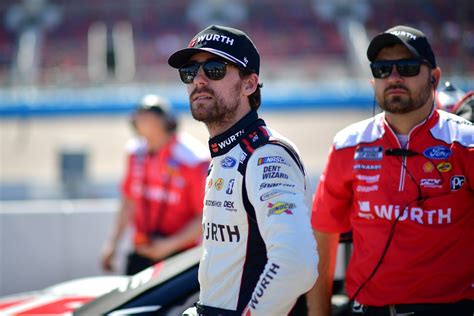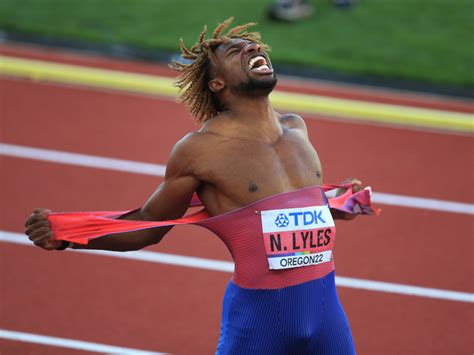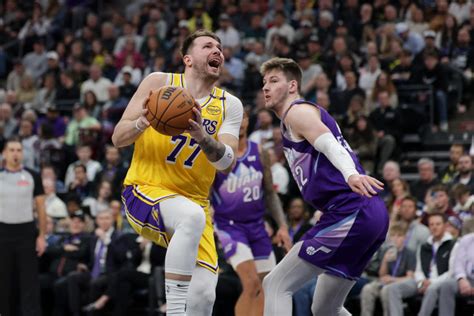
Philadelphia Eagles quarterback Jalen Hurts offered a terse, three-word response when asked about the team’s absence from the White House: “Next question, please.” The brevity reflects ongoing speculation and discussion surrounding why the team, fresh off their Super Bowl LVII appearance, did not make the customary visit to celebrate their achievements with the President.
The Philadelphia Eagles’ conspicuous absence from the White House, a tradition honoring championship-winning sports teams, has ignited widespread speculation and debate. While the team has not offered an official explanation, quarterback Jalen Hurts’ concise reaction – “Next question, please” – has only deepened the mystery surrounding the decision. This silence contrasts sharply with the open enthusiasm usually associated with such visits, leaving fans, analysts, and political observers alike to dissect the possible reasons behind the Eagles’ no-show.
Typically, a White House visit serves as a symbolic moment of recognition, celebrating the hard work and dedication of athletes and teams that have reached the pinnacle of their sport. It provides an opportunity for players, coaches, and team personnel to meet the President, tour the White House, and participate in photo opportunities, often accompanied by speeches and presentations. These visits are generally considered a high honor, representing not only athletic achievement but also a contribution to national pride and unity.
However, these visits have not always been without controversy. In recent years, some teams and individual athletes have declined invitations due to political disagreements or concerns about the current administration’s policies. The intersection of sports and politics has become increasingly prominent, and athletes are now more likely to use their platforms to express their views on social and political issues. This dynamic has added a new layer of complexity to the tradition of White House visits, as teams and athletes must weigh the potential consequences of accepting or declining an invitation.
The Eagles’ situation is further complicated by the diverse perspectives within the team and the broader Philadelphia community. Political views vary widely, and any decision regarding a White House visit is bound to be met with both support and criticism. It is possible that the team’s leadership considered these factors when deciding whether to accept the invitation, aiming to avoid unnecessary division or controversy. The lack of official explanation, however, leaves room for a multitude of interpretations, fueling ongoing speculation and debate.
Hurts’ three-word response, while brief, speaks volumes. It suggests a desire to avoid further discussion on the matter, possibly indicating a sensitivity to the topic or a reluctance to engage in potentially divisive political commentary. Whether the decision was motivated by political considerations, scheduling conflicts, or other factors remains unclear, but the silence from the team has only amplified the intrigue surrounding their absence.
The impact of this absence extends beyond the realm of sports and touches upon broader issues of political polarization and the role of athletes in public discourse. As athletes become increasingly vocal about their beliefs and values, their decisions regarding White House visits will likely continue to be scrutinized and analyzed. The Eagles’ situation serves as a reminder of the complex interplay between sports, politics, and social issues in contemporary society.
The decision not to visit the White House stands in stark contrast to the celebratory atmosphere that typically surrounds championship-winning teams. While the specific reasons behind the Eagles’ absence remain shrouded in mystery, the team’s silence and Hurts’ terse response have only intensified the speculation and debate. The event underscores the growing intersection of sports and politics, highlighting the challenges and complexities that teams and athletes face when navigating potentially divisive issues. The long-term implications of this decision remain to be seen, but it is clear that the Eagles’ absence from the White House will continue to be a topic of discussion and analysis for some time to come.
Deeper Analysis and Context:
The tradition of inviting sports teams to the White House began formally with President Andrew Jackson in 1829 when he invited the members of the United States Military Academy to visit. However, the more modern and formalized practice of inviting championship-winning teams took hold in the late 20th century. These visits serve as a photo opportunity, a chance to meet the president, and an acknowledgment of the team’s success at the highest levels.
However, the tradition has become increasingly politicized in recent decades. Teams and individual athletes have begun using the platform to express their political views by either accepting or declining the invitation. This has introduced an element of controversy, as some see it as disrespect to the office of the president, while others view it as an exercise of free speech and a statement of personal beliefs.
In recent years, several teams have faced similar dilemmas. For instance, some members of the Boston Red Sox declined to visit the White House during President Trump’s tenure, citing political differences. Similarly, the Golden State Warriors faced controversy when their star player, Stephen Curry, expressed reservations about visiting the White House, ultimately leading to the invitation being rescinded.
The Eagles’ situation is particularly noteworthy because of Philadelphia’s strong political identity and its history of passionate engagement with social issues. The city is known for its progressive values and active civic participation. This political context makes the Eagles’ decision even more significant, as it potentially reflects a broader sentiment within the team and the community.
Several possible reasons could be behind the Eagles’ decision. One could be a desire to avoid political endorsement or association with a particular administration. Another could be internal divisions within the team regarding political views, making a unified visit challenging. Scheduling conflicts or logistical difficulties are also possibilities, although less likely given the tradition’s importance. The team might also have wished to avoid drawing attention away from football matters, particularly given the intense scrutiny they faced after their Super Bowl loss.
Hurts’ response can be interpreted in multiple ways. It could indicate a deliberate strategy to avoid fueling further speculation or controversy. It might also reflect a personal discomfort with the issue, or a desire to keep the focus on the team’s performance and upcoming season. His brevity could be a way to deflect questions without offering a substantive answer that could be misconstrued or used against the team.
The ramifications of this absence are far-reaching. For the Eagles, it could affect their public image and relationship with fans, particularly those who hold strong political views. It also raises questions about the role of sports teams in contemporary society, and their responsibility to engage with political and social issues. For the White House, it could set a precedent for other teams to decline invitations, potentially diminishing the significance of the tradition.
In the future, it is likely that more teams will face similar decisions, and the intersection of sports and politics will continue to be a subject of debate. Athletes and teams will need to carefully weigh the potential consequences of their actions, considering the diverse perspectives of their fans, sponsors, and communities. The Eagles’ experience serves as a case study in the complexities of navigating this evolving landscape, highlighting the challenges and opportunities that arise when sports and politics collide.
The Eagles have a dedicated fanbase, many of whom are deeply involved in their communities and actively engage in political and social issues. The team’s decision will undoubtedly resonate with these fans, prompting discussions about the role of sports in society and the responsibilities of athletes as public figures. The team’s decision will likely be interpreted through different lenses, reflecting the diverse viewpoints within the fanbase.
The Philadelphia Eagles’ organization boasts a robust community outreach program, engaging in various philanthropic activities and initiatives that aim to support local communities. This commitment to social responsibility makes their decision even more noteworthy. It suggests that the team carefully considered the potential impact of their actions, aligning their decision with their values and commitments.
The incident has already sparked discussions among sports analysts and commentators, who are debating the appropriateness of athletes using their platforms to express political views. Some argue that athletes have a right to speak out on issues that matter to them, while others believe that sports should remain separate from politics. The debate underscores the complex relationship between sports, politics, and social responsibility.
The absence also opens up a broader discussion about the role of symbolism in sports and politics. White House visits are highly symbolic events, representing national unity and recognizing athletic achievement. By declining the invitation, the Eagles are challenging the traditional meaning of this symbolism, raising questions about its relevance in contemporary society.
Ultimately, the Philadelphia Eagles’ absence from the White House represents a complex intersection of sports, politics, and social issues. While the specific reasons behind the decision remain unclear, the team’s silence and Hurts’ terse response have amplified the speculation and debate. The incident underscores the growing politicization of sports and the challenges that teams and athletes face when navigating potentially divisive issues. The long-term implications of this decision remain to be seen, but it is clear that it will continue to be a topic of discussion and analysis for some time to come.
The organization’s silence further adds fuel to the fire, leaving room for speculation about internal disagreements, political statements, or a simple disinterest in engaging in what might be seen as a political photo op. Whatever the reason, Hurts’ brief statement has undoubtedly prolonged the life of the controversy.
The team may have considered potential backlash from fans and sponsors who hold differing political views. Given the highly polarized political climate in the United States, any decision regarding a White House visit is likely to be met with both support and criticism. The team’s leadership may have sought to minimize controversy by avoiding the visit altogether.
The absence also raises questions about the future of White House visits for championship-winning teams. As athletes become increasingly vocal about their beliefs and values, more teams may choose to decline invitations, potentially diminishing the significance of the tradition. This could lead to a reevaluation of the purpose and value of these visits.
Moreover, the Eagles’ decision can be analyzed within the broader context of athlete activism. Many athletes today are using their platforms to speak out on social and political issues, advocating for change and raising awareness about important causes. The Eagles’ absence from the White House could be seen as part of this larger movement, a silent protest against the current political climate.
The incident serves as a reminder of the evolving role of athletes in society. No longer confined to the playing field, athletes are increasingly expected to be socially and politically engaged. This expectation can create pressure on athletes and teams, who must navigate complex issues while trying to maintain a positive image and focus on their athletic performance.
The Eagles’ decision has also sparked conversations about the relationship between sports teams and their communities. Sports teams often play an important role in uniting communities, providing a sense of shared identity and pride. However, when teams take political stances, they risk alienating some members of their communities. This tension highlights the challenges that teams face when trying to balance their social responsibilities with their business interests.
In the aftermath of the controversy, it is important to remember that the Eagles are a diverse group of individuals with varying backgrounds, beliefs, and perspectives. It is unlikely that everyone on the team agrees on the decision to forgo the White House visit. However, the team’s leadership likely made a decision that they believed was in the best interests of the organization as a whole.
FAQ Section:
1. Why didn’t the Philadelphia Eagles visit the White House after their Super Bowl appearance?
The Philadelphia Eagles did not visit the White House after their Super Bowl LVII appearance. While no official reason has been provided by the team, quarterback Jalen Hurts responded to questions about the absence with “Next question, please,” suggesting a reluctance to discuss the matter. Possible explanations range from political disagreements to scheduling conflicts, although the team has not clarified the specific reasons.
2. What is the typical protocol for sports teams invited to the White House?
Typically, when a sports team wins a major championship (like the Super Bowl), they are invited to the White House to be honored by the President. This visit usually involves meeting the President, touring the White House, participating in photo opportunities, and sometimes includes speeches and presentations. The visit is intended to celebrate the team’s achievements and recognize their contribution to national pride.
3. Has any other sports team declined a White House invitation?
Yes, numerous sports teams and individual athletes have declined White House invitations in the past, often due to political reasons or disagreements with the administration in power. For example, some members of the Boston Red Sox declined to visit during President Trump’s tenure, and Stephen Curry of the Golden State Warriors expressed reservations that led to their invitation being rescinded.
4. What are some potential reasons the Eagles may have avoided the White House?
Several potential reasons could have influenced the Eagles’ decision, including:
- Political disagreements with the current administration.
- Internal divisions within the team regarding political views.
- A desire to avoid appearing to endorse a particular political ideology.
- Scheduling conflicts or logistical difficulties.
- Efforts to avoid drawing attention away from football matters or creating unnecessary controversy.
5. What does Jalen Hurts’ “Next question, please” response signify?
Jalen Hurts’ terse response likely signifies a desire to avoid further discussion on the matter, possibly due to its sensitivity or the potential for divisive political commentary. It could also indicate a strategic decision to keep the focus on football and the team’s performance, rather than engaging in potentially controversial political discourse.









